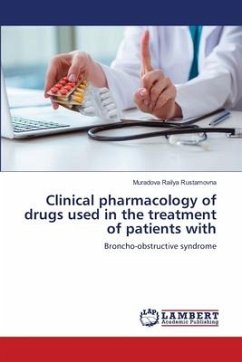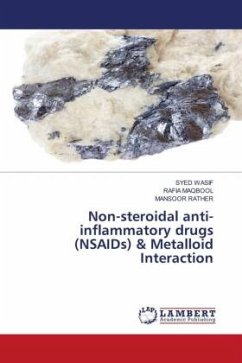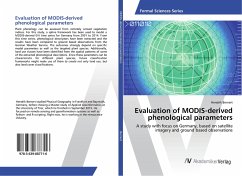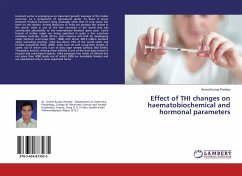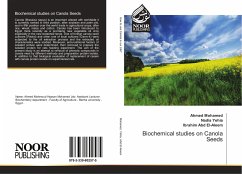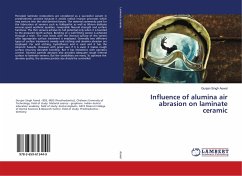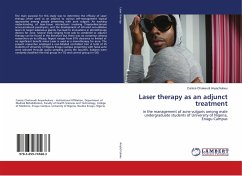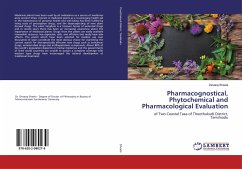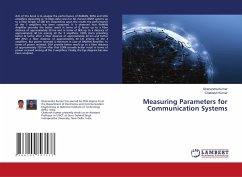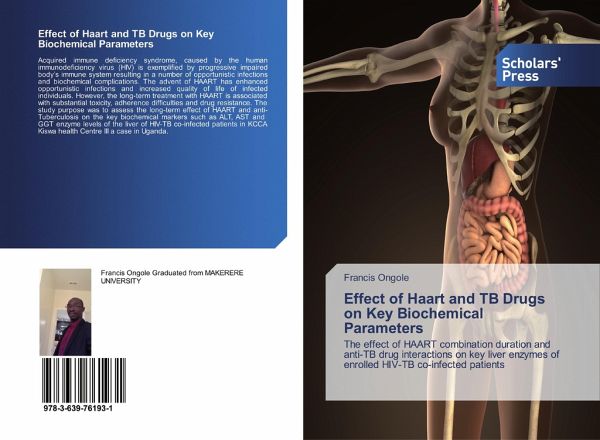
Effect of Haart and TB Drugs on Key Biochemical Parameters
The effect of HAART combination duration and anti-TB drug interactions on key liver enzymes of enrolled HIV-TB co-infected patients
Versandkostenfrei!
Versandfertig in 6-10 Tagen
30,99 €
inkl. MwSt.

PAYBACK Punkte
15 °P sammeln!
Acquired immune deficiency syndrome, caused by the human immunodeficiency virus (HIV) is exemplified by progressive impaired body's immune system resulting in a number of opportunistic infections and biochemical complications. The advent of HAART has enhanced opportunistic infections and increased quality of life of infected individuals. However, the long-term treatment with HAART is associated with substantial toxicity, adherence difficulties and drug resistance. The study purpose was to assess the long-term effect of HAART and anti-Tuberculosis on the key biochemical markers such as ALT, AST...
Acquired immune deficiency syndrome, caused by the human immunodeficiency virus (HIV) is exemplified by progressive impaired body's immune system resulting in a number of opportunistic infections and biochemical complications. The advent of HAART has enhanced opportunistic infections and increased quality of life of infected individuals. However, the long-term treatment with HAART is associated with substantial toxicity, adherence difficulties and drug resistance. The study purpose was to assess the long-term effect of HAART and anti-Tuberculosis on the key biochemical markers such as ALT, AST and GGT enzyme levels of the liver of HIV-TB co-infected patients in KCCA Kiswa health Centre III a case in Uganda.



